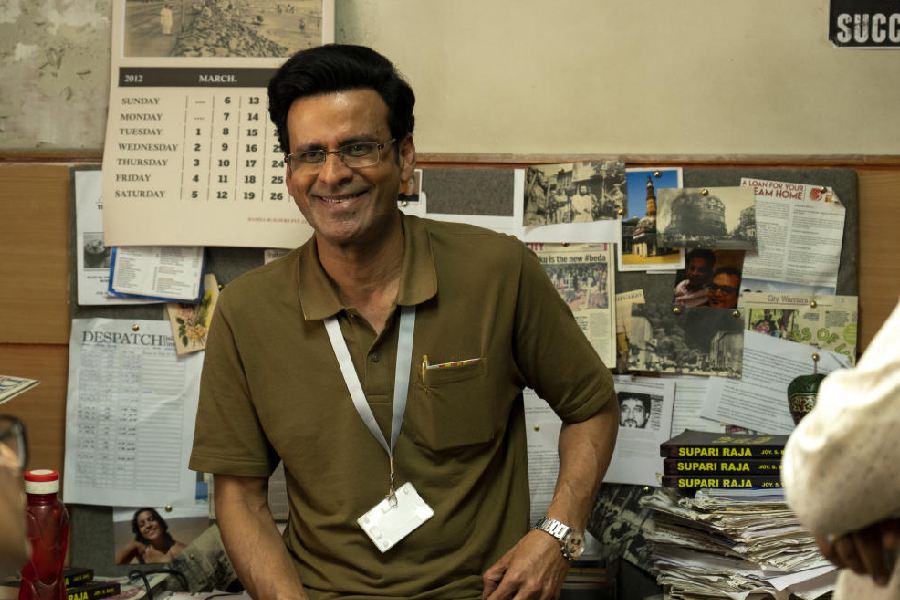A watch of Despatch, especially in its penultimate moments, sent me straight to Google in search of some facts and figures. That, in turn, led me down a rabbit hole where I was bombarded with one astounding (‘uncomfortable’ would be more apt) revelation after another.
According to the United Nations Educational, Scientific and Cultural Organisation’s UNESCO Observatory of Killed Journalists, more than 1,600 journalists have been killed since 1993. Earlier this year, UNESCO director-general Audrey Azoulay broke it down bluntly, stating that in 85 per cent of such killings, the perpetrator has gone unpunished.
“In 2022 and 2023, a journalist was killed every four days simply for doing their vital job to pursue truth. For the vast majority of these cases, no one will ever be held to account. I call upon all our Member States to do more to ensure that these crimes never go unpunished. Prosecuting and convicting the perpetrators is a major lever to prevent future attacks on journalists,” were the exact words from Azoulay.
‘Reporters without Borders’ states that over the last decade, more than half of the slain journalists in India were covering environment-related stories, with many linked to exposing the sand mafia. The media, much maligned, is perhaps also the most hunted today.
Despatch has one such man as its fulcrum. Joy Bag (played by Manoj Bajpayee) is part of the old guard of print journalism, a foot soldier working in a newsroom on the brink of digitisation. Director Kanu Behl’s earlier films, Titli and Agra, have established him as a filmmaker who has succinctly explored the underbelly and told the harsh truths of the marginalised, touching upon themes like patriarchy and repressed sexuality. In Despatch, streaming on Zee5 from December 13, he attempts to lay bare the rot in a system that will stop at nothing, not even murder, to shush down a whistleblower.
Joy Bag is the face of Gauri Lankesh, of Daniel Pearl, of Danish Siddiqui and of countless other members of the fourth estate whose voices have been silenced. In terms of scenario and setting, he is unmistakably based on J. Dey, the intrepid crime reporter whose investigation of the oil mafia and of the Mumbai underworld led to his murder in broad daylight in 2011. Last year, the TV series Scoop, directed by Hansal Mehta, told that story very effectively.
Despatch, however, is a different beast. It is far from sensationalist. It doesn’t strive to entertain. But it can really test your patience. There is also no attempt to whitewash its protagonist. Joy has a messy marriage (Shahana Goswami as the estranged wife makes a brief appearance), is having an affair with a subordinate (Arrchita Agarwaal makes an impression) and his means to get to what he wants may not always be pleasant.
Battling to stay relevant in a world where click-bait journalism is just a click away, Joy stumbles onto a high-profile, high-stakes scam while pursuing another story. That opens a can of worms, and though he is told to stay away — in both genial and odious ways — he gets sucked deeper into matters so murky that he finds his life on the line.
In Despatch, Behl brings in the moods and moments that have become his trademark to paint a bleak if realistic picture of the world as it is today. Aided by a superlative Bajpayee, he slowly peels off the layers. As Joy discovers the macabre truth, we in the audience are exposed to the loss of humanity as it were.
Siddharth Diwan’s cinematography of the dark alleys of Mumbai is perfectly juxtaposed with Joy’s journey through the muddy waters of the case he is investigating. Aiding him in his quest is another fearless reporter, with Rii Sen bringing grit and earthiness to her character, named Noorie.
Led by Bajpayee, Despatch — named after the paper Joy works at — hits a home run with its performances and a few moments. However, predictability is its bane and Behl choosing to pepper his narrative with Joy’s sexual encounters, is most often unnecessary. What is necessary, however, is that a story like this be told.











